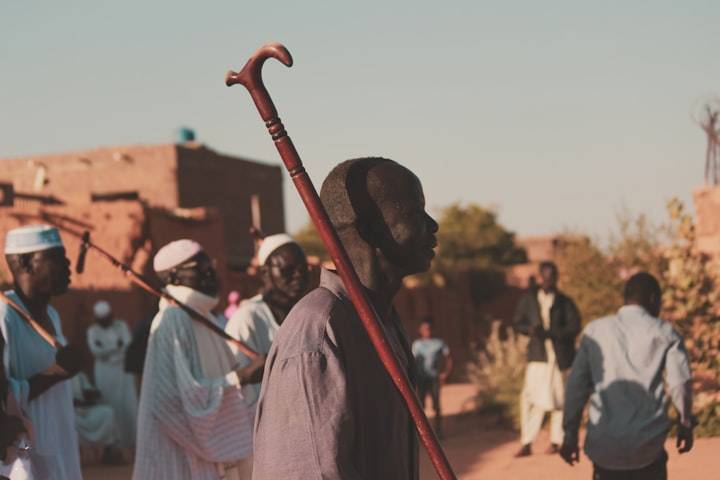The humanitarian crisis in Sudan, already considered the world's largest displacement crisis, has escalated into a new chapter of horror following the fall of El Fasher, the capital of North Darfur State. Since the Rapid Support Forces (RSF) seized control of the city in late October 2025, reports from survivors, human rights groups, and international bodies describe a systematic campaign of violence, ethnic targeting, and mass killings against civilians. This latest wave of atrocities underscores the devastating human cost of the nearly two-year-old conflict and presents a grave challenge to international humanitarian law.
The Fall of the City and Immediate Humanitarian Impact
For months, the city of El Fasher—a critical humanitarian hub and the last major military stronghold of the Sudanese Armed Forces (SAF) in Darfur—had been under an intense siege. Following the RSF takeover on October 26, 2025, the situation for the estimated 260,000 civilians trapped within the city quickly became catastrophic.
International organizations, including the United Nations and the World Health Organization (WHO), have documented horrendous accounts of violations. The most shocking reports center on attacks against civilian infrastructure and those who sought refuge there. At the Saudi Maternity Hospital, for example, which was one of the last partially functioning medical facilities, accounts suggest that hundreds of patients, their companions, and medical staff were killed. The WHO condemned the reported killing of more than 460 people in this facility alone, labeling the attack a severe violation of the sanctity of healthcare under international law.
Eyewitness testimonies from those who managed to flee describe indiscriminate violence, summary executions, and targeting based on perceived political or ethnic affiliation. Unarmed men were allegedly separated and shot at close range, with videos of the horrific acts, in some cases filmed by the perpetrators themselves, emerging despite a communications blackout. This brutality has created a mass exodus, with over 36,000 people fleeing El Fasher, mostly on foot, to the nearby town of Tawila, which is already overwhelmed with hundreds of thousands of displaced persons.
A Pattern of Targeted Ethnic Cleansing
The violence in El Fasher bears a chilling resemblance to the massacres previously committed by the RSF and allied militias in other Darfuri cities, most notably in Geneina, where up to 15,000 people were killed in 2023. Human rights analysts and research labs, including the Yale Humanitarian Research Lab, have warned that the scale of violence in El Fasher is consistent with a systematic and intentional process of ethnic cleansing.
The primary targets of these atrocities are the Indigenous non-Arab communities of Darfur, including the Fur, Zaghawa, and Berti. Reports indicate that fighters are going house-to-house, specifically targeting individuals from these groups. The brutality extends beyond mere killing; it includes widespread use of sexual violence and rape as a weapon of war, as reported by Sudanese officials, with hundreds of women and girls being subjected to assault, torture, and murder in the first days following the city's fall.
The deliberate targeting of religious sites has also marked the conflict, with previous RSF actions, such as a drone strike on the Al-Safiya Mosque in September 2025 that killed dozens of worshippers, demonstrating a complete disregard for human life and international protective conventions.
The Worsening Humanitarian Crisis and Call for Accountability
The military offensive has deepened a humanitarian crisis already defined by mass displacement, famine, and disease. Civilians who arrive in Tawila after a grueling, days-long journey are severely exhausted, dehydrated, and malnourished. They are also exposed to infectious diseases, with a cholera outbreak spreading rapidly across Darfur, where surveillance and response activities are crippled by the ongoing fighting.
The international community, while condemning the violence, has been criticized for its slow and insufficient response. Foreign ministers from countries including Germany, Jordan, and the UK have jointly called for an immediate ceasefire, describing the situation as "apocalyptic." This silence and inaction in the face of alleged war crimes fuels the climate of impunity that has plagued Sudan for decades.
For accountability to be served, the atrocities being committed must be thoroughly investigated. The work of the UN Fact-Finding Mission for the Sudan and the continued scrutiny by the International Criminal Court (ICC) are vital. The protection of civilians, unhindered humanitarian access, and a definitive end to the fighting are essential to prevent the complete annihilation of communities in Darfur. The world can no longer look away as this tragedy unfolds.
Source: International News and Humanitarian Reports (The Guardian, Associated Press, United Nations, World Health Organization, Plan International).




No comments yet
Be the first to share your thoughts!